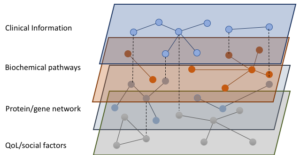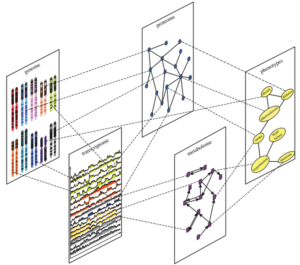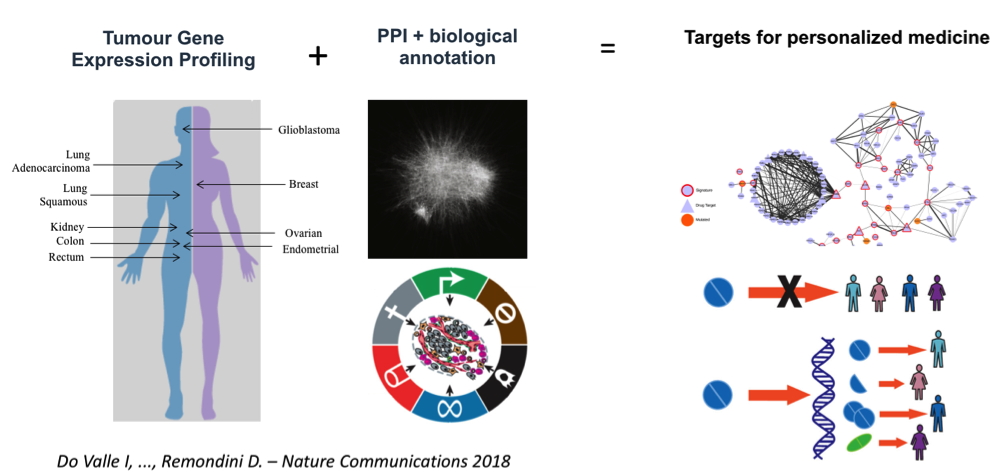PageContent
AIM – Artificial Intelligence in Medicine
Local Project Coordinator: Daniel Remondini
National Project Coordinator: Alessandra Retico (Pi)
Research Units: Ba, Bo, Ca, Ct, Fi, Ge, Pi
Duration: 2019-2021
Local Group : D. Remondini, L. Brizi Lonardo, G. Castellani, N. Curti, E. Giampieri, T. Matteuzzi, A. Merlotti, C. Sala, C. Testa
The BO group involves researchers with expertise in biological Big Data analysis, Machine Learning and mathematical modelling of biological systems (Systems Biology, Network Theory, Stochastic Processes). They also work to radiomics studies (integration of PET, CT and GEP profiling) in collaboration with several centers (IRCCS Reggio Emilia, IRCCS Meldola). They are involved in several EU projects (IMI-2 Harmony, COMPARE, Propag-Ageing, ITN IMforFuture, VEO) for the analysis and management of omics data integrated with networks of knowledge (Protein, Transcriptome and Metabolic interaction networks). They collaborate directly with CNAF Computing Group for tasks of data management and High Performance Computing.
Activities where Bologna is involved include:
+ Harmonization of omic data
NGS and high-throughput data from several EU centers (inside IMI HARMONY EU project) will be studied, and will be tested against clustering and feature extraction algorithms as a function of the designed harmonization (e.g. normalization per sample/per probe) procedures.
+ Integrated quantification of PET and omics data
+ Predictive models for Systems Medicine













